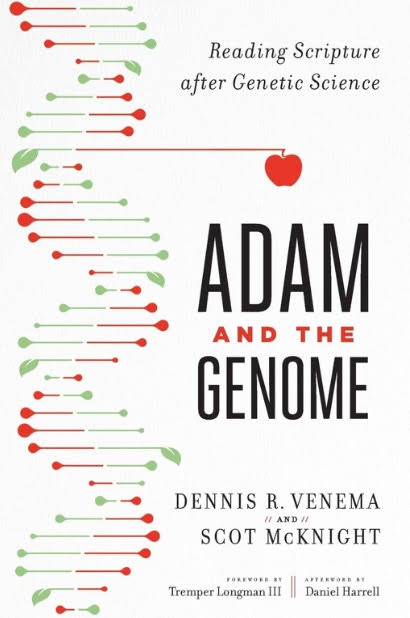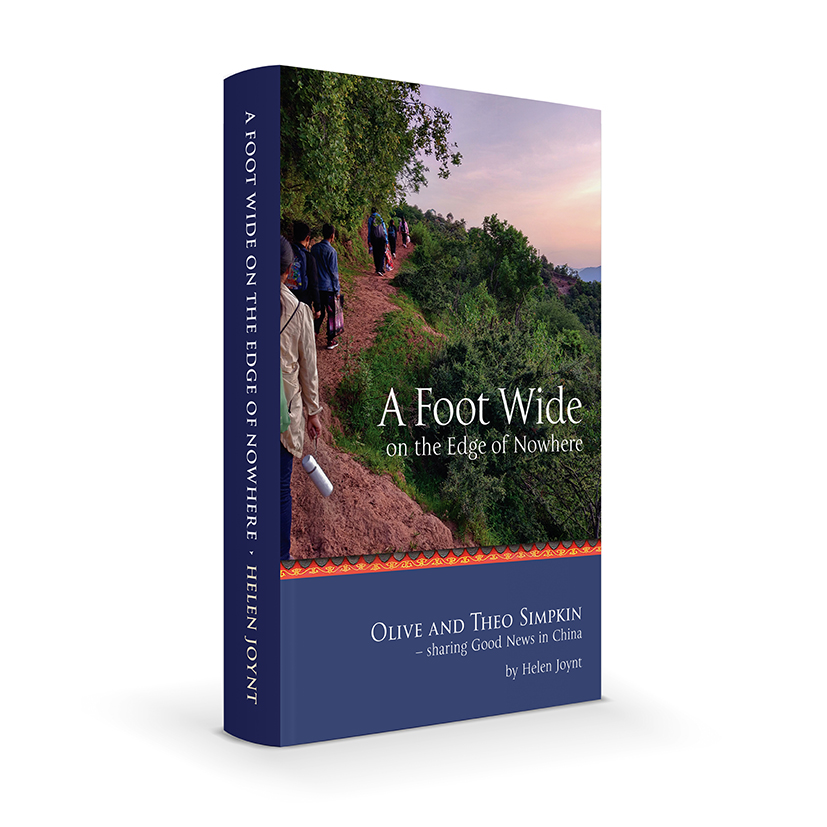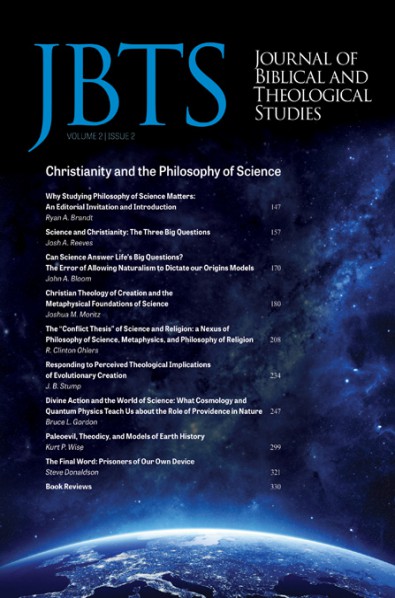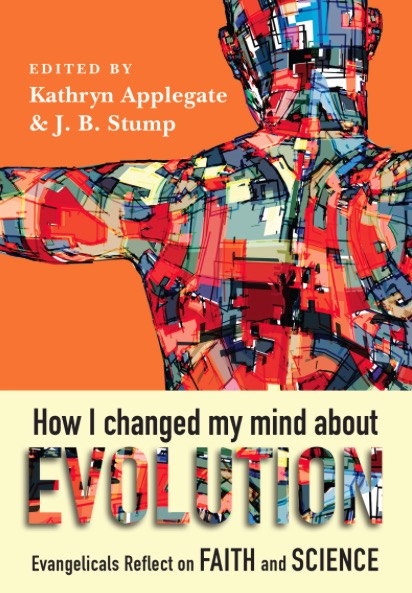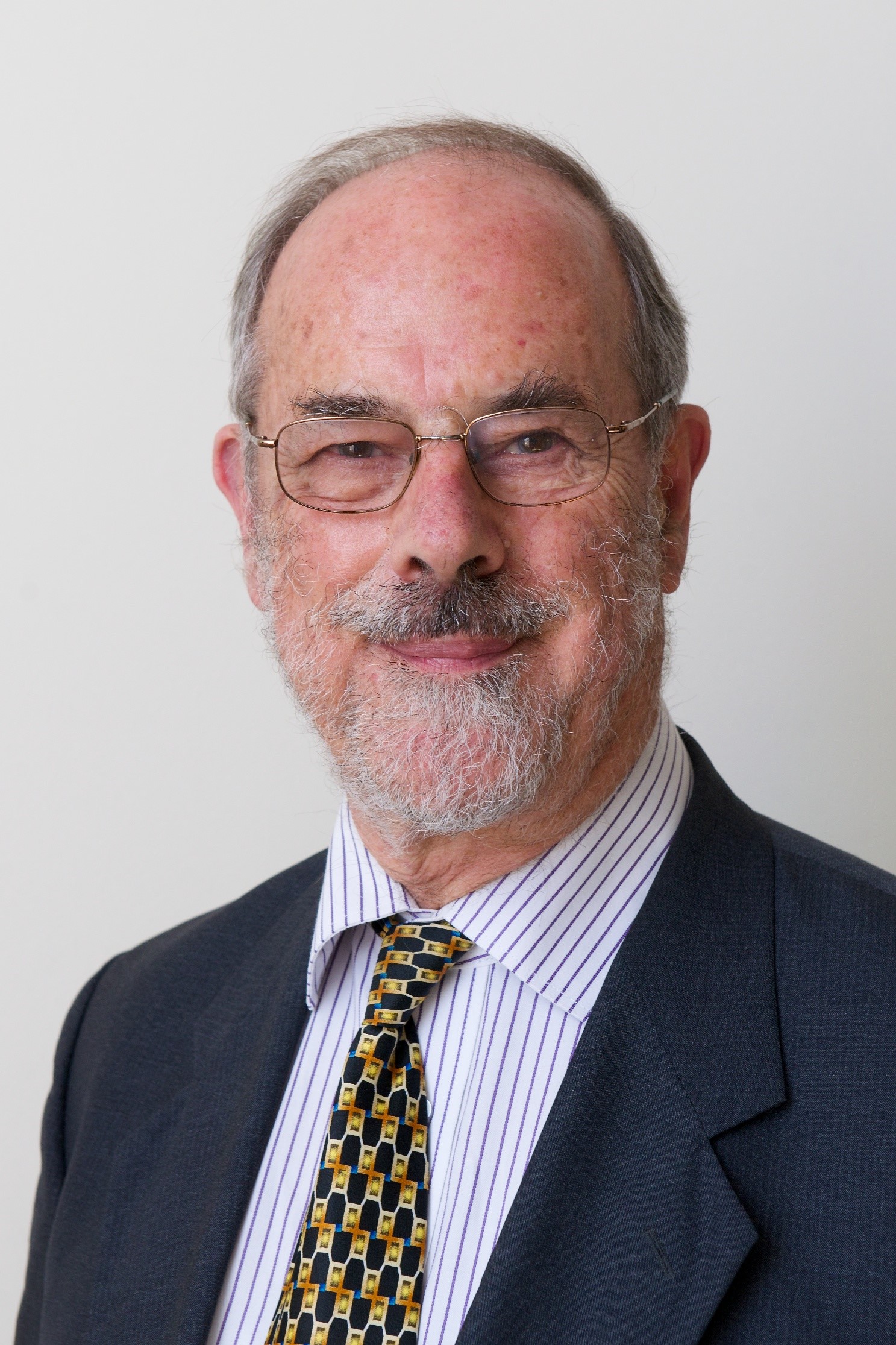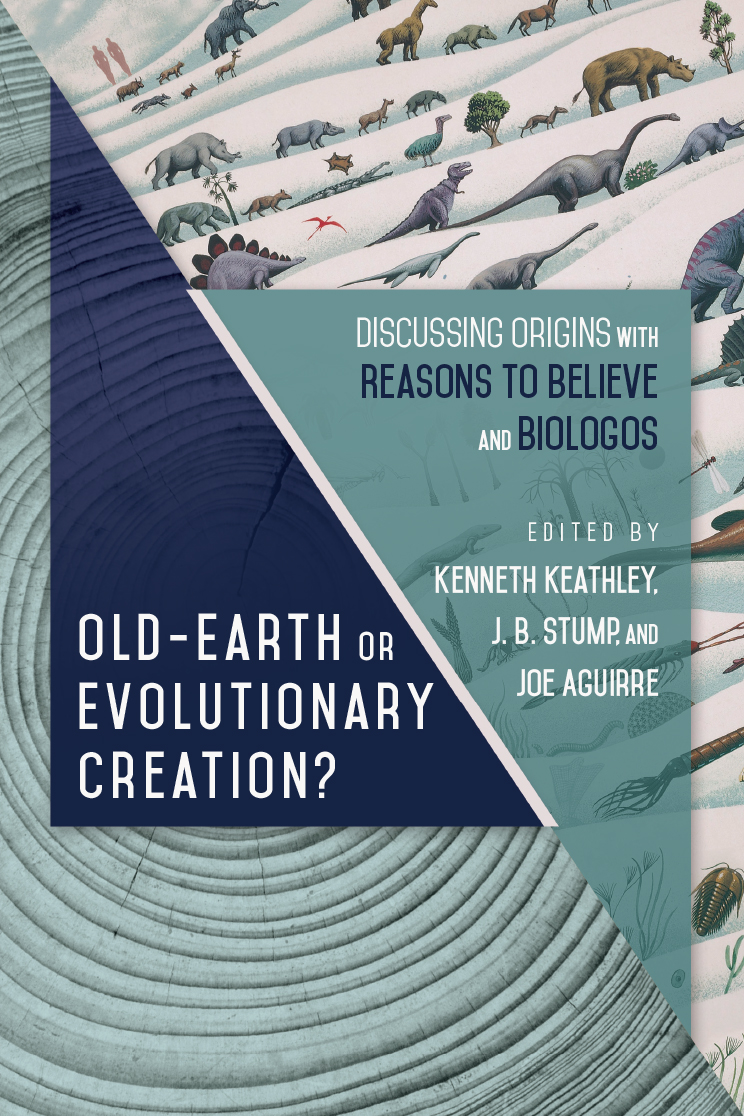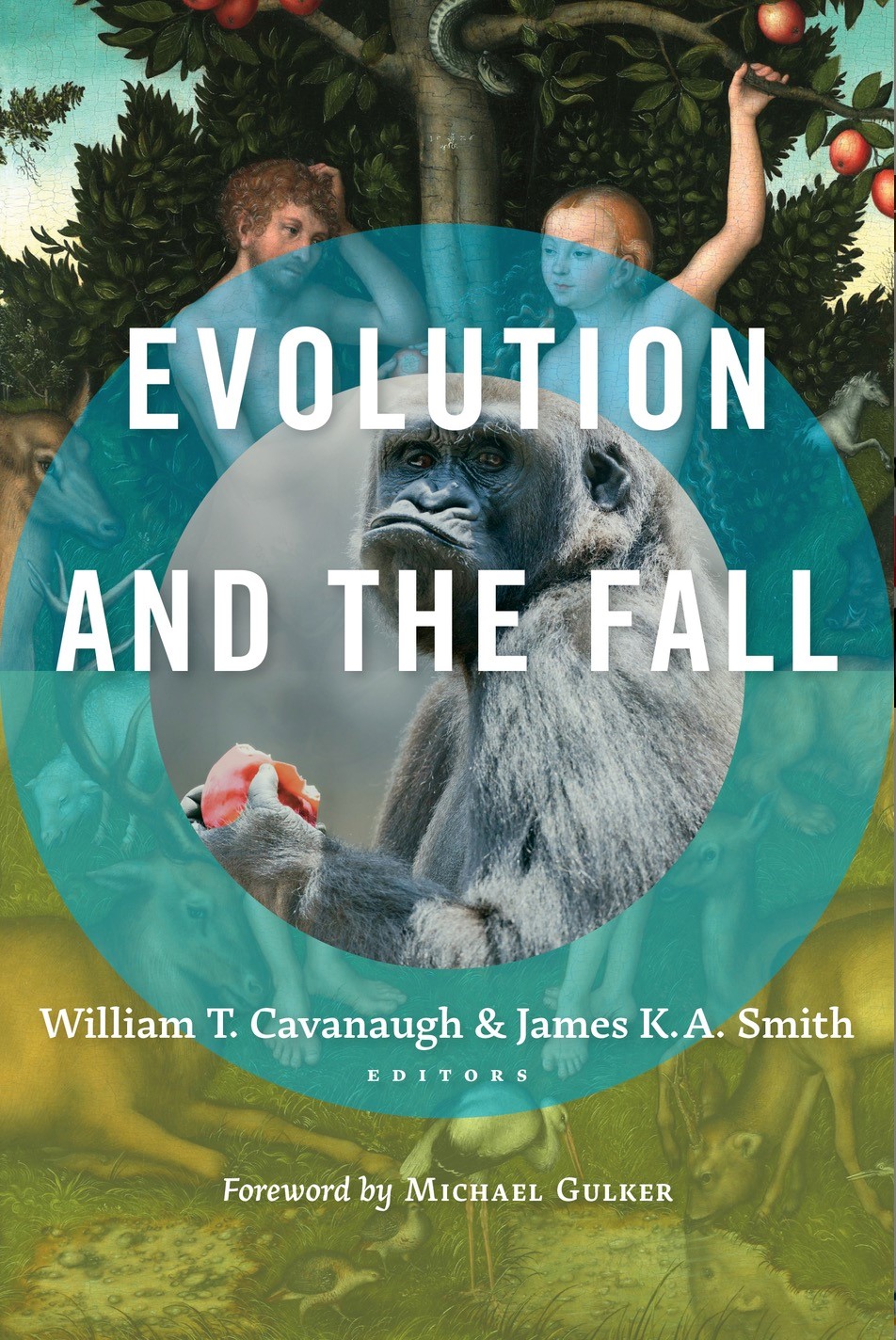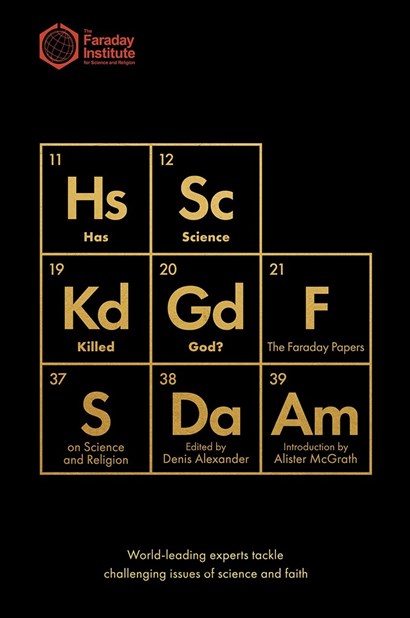


Author
Revd Dr Sidney Green is a retired Anglican Priest living in Adelaide and still active in many ways in the diocese. He is an adjunct lecturer for Charles Sturt University. His ThD thesis, now published as Beating the bounds: A symphonic approach to orthodoxy in the Anglican Communion by Wipf & Stock, is available from Amazon.
This article is based on a presentation delivered at the ISCAST Victoria Symposium, 6th July 2014.
Abstract
It is impossible to ignore the existence of a powerful, well-financed group of evangelical fundamentalist Christians who deny the scientific evidence for global warming, climate change and the consequent need for urgent action. They seem unable to allow science and theology to work within their own spheres without infringing the vital freedoms of each. Their negative and sometimes vitriolic criticisms of orthodox science in these areas are examined, challenged and questioned. Their approach to eschatology influences long-term planning on climate issues and has dangerous and destructive influence on other areas government policy making. Evidence from the US and the UK suggests that fundamentalist Christians are engaging in deliberate strategies of influencing government departments and accessing even the legislatures themselves.
This paper seeks to expose these dangers and suggests ways of countering these negative influences by suggesting more positive actions to be taken by Christians both within the church and in public debate.
Key words
evangelical fundamentalism, climate change science, care for the poor, eschatology, political influence
Introduction
It would be relatively easy to make the assumption that the Christian Church has, by and large, fully taken on board the scientific evidence for global warming and climate change. You may think it has taken on board the need for urgent action to ameliorate the harm caused by human action and the consequent need to reduce the amount of carbon dioxide in the atmosphere.
Certainly some more liberal evangelicals have seen the light on climate change and formed groups such as the Evangelical Environmental Network (EEN) in 1983 and the Evangelical Climate Initiative (ECI) in 2006 which issued its powerful ‘Call to Action’ in 2011 (Evangelical Climate Initiative 2011). While both of these organisations are based in the United States their influence has had worldwide significance.
However, not all is positive within evangelical ranks. It is impossible to ignore the existence of a very real, vocal and extremely powerful, well-financed group of evangelical fundamentalist Christians with links to and influence within governments throughout the world.
It is important to understand just what is meant by the epithet ‘fundamentalist’. Christian Fundamentalism, as we know it today, really began in 1895 when the Conference of Conservative Protestants met at Niagara Falls and issued what they called the five principles necessary for anyone to claim true Christian belief:
1 the inerrancy of the Scriptures;
2 the divinity of Jesus;
3 the historicity of the Virgin birth;
4 the substitutionary nature of the atonement; and
5 the physical, corporeal return of Jesus, the Christ.
These five principles became known as ‘The Fundamentals’ (Tickle 2008).
By 1910 the Conservative Protestants were publishing a magazine called ‘The Fundamentals’ and the word ‘ fundamentalist’ had entered the language as a clear label for anyone with a clearly defined theological mindset. They added two more principles, namely, the obligation to evangelise and the necessity of a belief in Jesus as a personal Saviour. These seven principles have now become the core doctrines of what might be called evangelical Christianity.
As time went on, however, for some extreme groups such beliefs became more and more anti-intellectual, anti-ecumenical and anti-social action and were centred on theological propositionalism and evidential apologetics. Despite the reversal of some of these emphases from 1945 until the mid-sixties by the so-called ‘New Evangelicals’ such as Carl Henry and the establishment of publications such as Christianity Today, fundamentalism has become more diverse, especially concerning the matter of biblical inerrancy.
Jakobus M Vorster, in his study on the core characteristics of religious fundamentalism (Vorster 2008), adds a number of other factors which, for him, describe the common characteristics of Christian fundamentalism. He begins with ‘Biblicism’ which he describes as the use of the biblical texts in an over-literalistic way often ignoring or paying scant regard to its cultural, historical or literary background. While Biblicism reaches back to the ancient texts in order to highlight the core fundamentals of religion, Vorster adds the concept of ‘traditioning’, describing the attempt to add further authority to these fundamentals by indicating their stand and value in the historic traditions of the faith.
Having elevated certain fundamentals to absolutes and interlaced its whole ideology around these absolutes, fundamentalists often may promote a legalistic lifestyle, often consisting of many external ways of conduct with its own symbols and social structures as means of promoting and defending their identity (Vorster 2008).
Due to their common experience of fear for the loss of identity, their reactionary disposition, their prejudice and intolerance, fundamentalists develop a strong sense of an ‘in-group’ frame of mind with a rigid homogeneous culture.
Because they most often define themselves by what they are against, they always have a very real and easily identifiable enemy against whom they motivate and muster themselves. In its extreme form fundamentalism can condone acts of violence to promote the ‘sacred’ cause in obedience to God. This violence can be physical, such as the attacks on abortion clinics by fundamentalist Christians in the United States, but it is more often verbal or psychological violence against those who differ from them, or against those who, from within their own ranks, waver in their total allegiance.
Looking at the science of climate change as perceived from within this fundamentalist culture there seem to be three main areas where clashes are almost bound to occur:
1 a distrust of science in general and climate science in particular;
2 the priority of the poor;
3 the influence of fundamentalist eschatology.
1. A distrust of science in general and climate science in particular
Clashes between religious fundamentalists and contemporary ideas are nothing new. As Pigliucci points out, Christian fundamentalism was antagonistic towards new philosophical critical and rational thinking even before the birth of modern science during the Enlightenment and, despite the positive contribution and involvement of many Christians in early Enlightenment scientific and philosophical investigations, continued to vigorously denounce as un-Christian such involvement and acceptance (Pigliucci 2005).
It was, of course, the now infamous so-called ‘monkey’ trial of science teacher John Scopes, charged with illegally teaching the theory of evolution in the State of Tennessee in 1925, which launched the modern form of such attacks. Recognizing they are losing the battle when it comes to demonizing science itself, Creationists now put on their pseudo-scientific cloak of intelligent design.
Now I say this having read with great interest ISCAST Fellow Professor Brian Edgar’s paper of 2009 still available on the ISCAST website on ‘Understanding and teaching Intelligent Design’, in which he rightly reminds us of the honourable history of the argument for the existence of God from design. Starting from Paul in Romans 1:19–20 he takes us through Thomas Aquinas’ teleological argument to William Paley’s famous watch analogy right up to present day ‘irreducible complexity’ arguments. It must be said, however, that certainly Paul, Aquinas and Paley had no knowledge of what science today has learned and even Edgar, writing of the modern phenomenon of irreducible complexity (IC), says,
Not only has IC failed to persuade the scientific community but it has produced a strong reaction from those who argue that it is dangerous if the idea of a designer is, by itself, a sufficient explanation for the existence of an entity and that further scientific research is unnecessary once a designer is postulated.
Edgar 2009, p. 6
Despite this, Intelligent Design supporters still fight this battle in the courts for the right to teach their views in the classrooms of the USA and throughout Europe.
The same is true over climate science. Having denounced as dubious any sense of a consensus of orthodox scientific opinion on human-induced global warming, major evangelical fundamentalist leaders such as
E Calvin Beisner, a founder member of the Cornwall Alliance, now claim to have the support of over 19,700 scientists, including,
… 2,660 physicists, geophysicists, climatologists, meteorologists, oceanographers, and environmental scientists who are especially well qualified to evaluate the effects of carbon dioxide on the Earth’s atmosphere and climate … 5,017 scientists whose fields of specialization in chemistry, biochemistry, biology, and other life sciences make them especially well qualified to evaluate the effects of carbon dioxide on the Earth’s plant and animal life.
Beisner et al. 2006
All of these ‘experts’ are claimed to support the view that the orthodox science behind the four ‘assumptions’, as they derogatorily call the four claims of the Evangelical Climate Initiative’s ‘Climate change: An evangelical call to action’ are ‘false, probably false, or exaggerated’ (ECI ‘Call to Action’ 2006).
The ECI’s claims are short and succinct:
· Human-induced climate change is real.
· The consequences of climate change will be significant, and will hit the poor the hardest.
· Christian moral convictions demand our response to the climate change problem.
· The need to act now is urgent. Governments, businesses, churches, and individuals all have a role to play in addressing climate change—starting now.
These extreme fundamentalists, however, are set clearly against the orthodox scientific consensus on climate change. They deny that the human contribution to greenhouse gases is causing dangerous global warming. What the planet is experiencing, they say, is merely one of many natural cycles of warming and cooling in geologic history. They even claim that the increase in CO2 is a benefit to plant yield.
…. for every doubling of atmospheric CO2 observational evidence and computer concentration show that there is an average 35% increase in plant growth efficiency. Plants grow better in warmer and colder temperatures and in drier and wetter conditions, and they are more resistant to diseases and pests. Consequently their ranges and yields increase.
Beisner et al. 2006
As a non-scientific layman that sounds rather like trying to have it both ways but I leave that to the scientists to argue about. It is not the purpose of this paper to enter into this scientific argument in a detailed way but merely to use it as an illustration of the continuing contemporary battle between religion and science. However, the question is clearly raised as to why fundamentalists are so afraid of orthodox science.
Using the philosophically much discredited ‘slippery slope’ illustration (Epstein 2005), fundamentalists often argue that to give ground to science, especially science that appears to set itself against a literal interpretation of the Bible concerning the creation and preservation of the earth and the arrival and destiny of human beings, must lead inevitably to atheism.
They cannot seem to make the subtle but crucial distinction between two respected approaches to the physical world of nature and to the existence of the supernatural and a higher being which may or may not be called ‘God’.
The methodological naturalism of the true scientist does not necessitate the denial or affirmation of the existence of God and does not involve such a belief one way or the other in any of its scientific investigations and conclusions about nature. Such an approach is neither helped nor hindered by the personal beliefs of the scientist.
It is also evident that the scientific work of those who hold to what is known as philosophical naturalism, which is the fixed position that nothing exists apart from nature and thus is the basic foundation of atheism, is also to be respected. The lack of faith in the scientist has no bearing on the validity of their work. As Pigliucci affirms,
Scientific explanations of the world around us are naturalistic by definition, or else science would not have produced a set of reliable theories and empirical methods to work with and build on.
Pigliucci 2005
It is this distinction that gives the scientist the freedom to believe or not believe in God or a supernatural dimension while engaging in a totally ‘this-worldly’ scientific investigation. If this distinction is recognized then it is, of course, possible for science and religious belief to peacefully exist alongside each other. It is, however, this distinction that religious fundamentalists seem unable to make or accept.
This is not to say that new and proved scientific evidence does not have an effect on our religious understanding of the world and, therefore on our understanding and interpretation of the scriptures. Richard Dawkins, the atheist evolutionary biologist, wrote that claiming that religious beliefs are outside the domain of science is intellectually dishonest (Dawkins 1999, pp. 62–64). For all his faults in this debate, and they are many, he is right on this matter. True science can never be a closed system where any idea of change is resisted. On the contrary, science is constantly reviewing its findings and, if necessary, will revise its views if the data supports a revision. The same surely must be true of honest theology and biblical hermeneutics. If science proves that a particular understanding of scripture is no longer acceptable then so be it. Church history teaches us that Christian orthodoxy has never been a static thing but has always been a dynamic concept. This is, of course, in complete contrast to religiously backed pseudo-science that cannot allow any scientific evidence to threaten and undermine its pre-determined stance on any particular theological understanding or interpretation of the scriptures.
Ernst Mayr, enunciates the distinction clearly. Not only does science not:
invoke supernatural explanations or rely on revelation to understand how the universe operates. Religion does both.
Mayr 1999, p. 65
Another problem concerns the ethical issues that surround many areas of scientific investigation. Of course there are limits to what scientists may do in order to further their investigations. No scientists in their right mind would consider inflicting pain and suffering on fellow human beings in the name of science as ethical. Even the contentious issue of the use of animals in experiments has its limits. The question is, who decides where these boundaries are? Do boundaries exist, not only in the ‘how’ of experimentation but also in the ‘what’ — what areas is it permissible to enter into? As examples, one could think of areas like stem cell research or genetically modified crops.
The arbiter in these issues cannot simply be the biased religious fervour of the few, although their contribution to the public discussion is as welcome as any. Neither can scientists alone decide what is right and acceptable. Society at large will most certainly make its views known by the provision of funds or the withholding of such support from research into particular areas.
Peter Weingart writes,
On the one hand, science should be free as much as possible to pursue fundamental research in all areas of human knowledge, both for its own sake and because of the potentially positive consequences for society. On the other hand, scientists cannot be the sole arbiters of ethical decisions about what sort of science and its applications is acceptable by society at large, although of course scientists do have a special dual role as both informed experts and participating citizens in any such decision.
Weingart 2001
We cannot expect every member of society to have a deep and clear understanding of scientific principles but we can be encouraged that more and more people are becoming educated in science and taking a deep interest in its developments.
Neither can we expect every member of society to be able philosophers, applying their minds to the challenges of ethics and religious belief. For better of for worse, we have, as a society, whether we are religious or not, become more and more dependent on science to solve the social and environmental problems that the world faces. For science to do its work properly it cannot be shackled by blind religious dogma or unfounded superstition. Unless this freedom is given, the future of the quality of life on our planet will continue to be under threat.
2. The priority of the poor
I do not need to spell out here the priority given to the poor in both the Old and New Testaments or to repeat the constant teaching of the church down the ages of this gospel imperative. Pope Francis has clearly set this out afresh in his thoughtful encyclical ‘Evangelii Gaudium’. The section ‘The inclusion of the poor in society’ (Pope Francis 2013) should be required reading for all those with a heart for the fullness of the gospel.
I must make it clear that those who oppose orthodox climate change science on religious grounds have no less a concern for the poor. Their religiously focussed scientific viewpoint, however, leads them to reject the orthodox scientific consensus on how best to help them. I can do no better than to quote directly from the Beisner et al. paper, ‘A call to truth, prudence and protection of the poor: An evangelical response to global warming’.
What of the claim that ‘The consequences of climate change will…hit the poor the hardest’? Actually the destructive impact on the poor of enormous mandatory reductions in fossil fuel use far exceeds the impact on them, negative or positive, of the moderate global warming that is most likely to occur… Because energy is an essential component in almost all economic production, reducing its use and driving up its costs will slow economic development, reduce overall productivity, and increase costs of all goods, including the food, clothing, shelter, and other goods most essential to the poor.
Put simply, poor countries need income growth, trade liberalization, and secure supplies of reliable, low-cost electricity… If the aim is to help the poor, what matters from the policy point of view is supporting the development process by which countries acquire greater ability to deal with adverse economic, climatic, and social conditions, regardless of cause.
Beisner et al. 2006
Suffice it to say that they use these means to argue strongly that the answer to meeting the needs of the poor is not a sustained attempt to halt inevitable climate change but rather to equip them better to deal with inevitable changes they will have to face.
The language used, however, can be very strong, even vitriolic. Beisner has declared that the environmental movement is ’deadly to the gospel of Jesus Christ’, and that believing in climate change is ‘an insult to God’. It is an affront to God to not utilise the ’abundant, inexpensive and effective [fossil] fuel sources’ that God has provided. He elaborated: ‘God buried those treasures there because he loves to see us find them and put them to use’. He compared those who would curtail the deployment of these resources to the ‘wicked and lazy servant’ in Jesus’ parable of the talents (Matthew 25:14–30) (Bailey 2012).
We have seen, so far, that the anti-climate science lobby has an inbuilt distrust of science coupled with a creationist view of the earth and its resources. These two views play an important part in the on-going debate between two biblical principles: dominion and stewardship.
From his reading in Genesis that humankind has been given dominion over the environment:
God blessed them and said to them, ‘Be fruitful and increase in number; fill the earth and subdue it. Rule over the fish of the sea and the birds of the air and over every living creature that moves on the ground’.
Genesis 1:28
and that man is also commanded to be a steward to the garden:
The LORD God took the man and put him in the Garden of Eden to work it and take care of it.
Genesis 2:15
Beisner is led to argue that God intended, and still intends, mankind to transform the Earth ‘from wilderness into garden’ using whatever exploitation of the environment might be necessary. He argues from his views we noted earlier (about the benefits, so-called, of a rising carbon dioxide level) that carbon dioxide emissions actually fulfil:
both the subdue-and-rule and be-fruitful-and-multiply commands of dominion, turning wilderness into the garden and transforming previously unfarmable areas into regions hospitable to plant growth.
Beisner 2005
Using scriptures, such as Psalm 19:1–6, he argues that God is too wise and his creation too adaptable to be much negatively affected by mankind’s activities. To deny that is to deny God’s omnipotence and his love for humanity. So he believes we can leave the safety of the world in God’s hands and get on with using all the resources of the earth in any way we want.
Neither side of this great divide will relinquish their title as defenders of the poor, nor can they agree on the scientific basis and economic impacts of climate change. Consequently, the challenge for non-fundamentalist Christian environmentalists now is less about proving and defending their theological positions but more about arguing the scientific legitimacy of reports that human-induced emissions are contributing to a potentially catastrophic warming of the earth. Since we know that fundamentalists are wary of orthodox science in general that is going to be a difficult task.
3. The influence of fundamentalist eschatology
It has always been part of the Christian hope to look for the Second Coming of Jesus Christ. Many Christians have searched the scriptures looking for clues as to when this might be and what signs would precede the great event.
This has given rise to all sorts of eschatological theologies ranging from a restrained willingness to concede that this mystery will be resolved in God’s good time to the more weird and wonderful that believe that the Bible offers a detailed chronology of the end times. This (latter) pre-millennial dispensationalism is rooted in a literalistic interpretation of scripture, especially the Book of Revelation and other apocalyptic literature. It sees the cataclysmic events of hurricanes, earthquakes, floods, terrorist attacks especially on Israel, and the increasing wickedness of humankind, as they see it, manifested in the legalising of gay marriage and other lapses from conservative morals, as clear signals that the Last Days are upon us.
If that is so then why should anyone with faith have any concern about the environment? Surely the devastating events we have already listed are clear signs that the Rapture is imminent. If Christians are about to be whisked up to the joys of heaven then why should they care about the state of the earth and the living standards of those who will be left behind and who are doomed to judgment and eternal punishment anyway? This is how they read the Scriptures such as:
Nation will rise against nation, and kingdom against kingdom. There will be famines and earthquakes in various places. All these are the beginning of birth pains.
Matthew 24:7–8
Glen Scherer puts it succinctly,
… [W]hy care about converting from oil to solar when the same God who performed the miracle of the loaves and fishes can whip up a few billion barrels of light crude with a Word?
Natural-resource depletion and overpopulation, then, are not concerns for End-Timers and nor are other ecological catastrophes, which are viewed by dispensationalists as presaging the Great Tribulation.
Scherer 2004
He also notes that a similar interpretation of Revelation 6: 1–8 sees,
… suggestions of ecological meltdown in Revelation’s four horsemen of the Apocalypse; War, Famine, Pestilence, and Death, and they cite a verse mentioning costly wheat, barley, and oil as foretelling food and fossil-fuel shortages.
Scherer 2004
Barker and Bearce in their study for the University of Utah’s Political Science Association argue that fundamentalist believers have a different view of time from non-fundamentalists. Fundamentalists have a very short life expectancy for the planet and they are ‘certain’, because of the ‘revelation’ they have received from the scriptures, that God has pre-ordained an expiry date that cannot be changed whatever humans may try to do. They see the attempts to save the planet and preserve it for future generations as futile and really a mark of faithlessness concerning the revealed will of God. Indeed some fundamentalists almost welcome the destruction of the environment because it ‘proves’ the truth of their religious point of view (Barker & Bearce 2013).
When such beliefs are argued against strongly it has the effect of strengthening the belief of those who hold them. As Vorster noted in the first section of this paper, the very fact of being opposed is seen as a badge of honour and a mark of the persecuted martyr spirit only found in true believers. (Vorster 2005. pp. 49–50)
Conclusion
In the battle between orthodox science and fundamentalist pseudo-science there can be no other or greater answer than to keep the tide of real evidence for human-induced global warming flowing. The evidence sadly shows that science has not yet won the battle for hearts and minds. While it is unlikely that there will be wholesale conversions among the fundamentalists, the slow but sure gathering of evidence must, in the end, overwhelm the powers of bigotry and ignorance. For evidence of this, one only has to look to ultra conservative evangelical Pat Robertson in the United States, who reversed course and admitted that 2006’s summer heat wave convinced him of the legitimacy of global warming science and the need to do something about it. This was to the consternation of many of his followers (Robertson 2006).
On the matter of the priority of the poor there is the same need for scientists to continue to chip away at the foolishness of those who believe that continuing with the practices that have brought about so much of the destruction of the environment and caused much of the deprivation of the poor can be the best way to end it. More than that, however, the challenge of the gospel to those of us who are privileged to live in the affluent parts of the world is clear. We must be prepared to ‘walk the talk’ and change our own way of life so that it not a case of ‘do as I say not as I do’. Only by such sincerity of action and identification with those we claim to want to help can we hope to persuade those who long for all that we have, that it is possible to live a fulfilled 21st century life without the trappings of affluence.
The problem of warped eschatological expectations and beliefs is perhaps the most important of all because the evidence is that such beliefs cause those who hold them to be interested only in short-term political-theological outcomes, not long-term solutions. The fact is that almost every major environmental issue, from the conservation of endangered species to the curbing of climate change, requires a commitment to, and belief in, a long-term future for this planet. We have already seen how difficult it is to persuade those believing that the Parousia is imminent to take any interest in or show any concern for environmental issues.
The really scary thing is that in some of the major democracies of the world fundamentalist believers have undue influence in the government. In the United States, during the Republican administration of President George Bush Junior, the conservative Christian right backed 231 members of the American legislature many of whom openly voiced their negative fundamentalist views in debates on climate change quoting the Bible as their authority (Scherer 2004 p. 14).
‘It’s like half this country wants to guide our ship of state by compass: a compass, something that works by science and rationality, and empirical wisdom’, quipped comedian Bill Maher on Larry King Live, ‘and half this country wants to kill a chicken and read the entrails like they used to do in the old Roman Empire’.
Scherer 2004, p. 15
The same appears to be true in the United Kingdom at present. The Church of England (Anglican Church) was always traditionally known as ‘The Tory party at prayer’. But in recent years the religious allegiances of the Conservative parliamentary party have changed. There is now a noisy wing of Christian fundamentalists within the parliament whose influence is clearly growing.
David Cameron, the current prime minister, has stealthily started to unveil policies on matters such as abortion, and the encouragement of faith schools. These are clearly designed to shore up its increasingly loud, ultra-conservative Christian base. Strong links have emerged between the religious right and some Tories, with support from the media. Some groups in the UK have received funding from US groups. Their aim isn’t merely to push certain policies, but, in copying tactics from their American counterparts, build a more sustainable, long-term movement that would change the face of British politics.
The rise of the Christian right is partly a backlash to increasingly liberal social attitudes and secularisation. But there is also a strategic element to the rhetoric. It may be hard to believe that Britain will turn into Jesus-land, but social attitudes are always in flux. And developing a sense of victimhood is an essential part of the religious right’s strategy to fire up its base. After all, it has been used to great effect in the US.
Hundal 2010
While it is unlikely that the British would allow an American type of fundamentalism to take as much power and influence as it has in the United States, according to the Evangelical Alliance, more than two million people in the UK now claim to be Pentecostal worshippers whose ambitions go far beyond the borders of their local communities. Like most fundamentalist movements, the ultimate aim is a society built on their rigid belief system.
Christian Action Research and Education (CARE) has borrowed the tactics of America’s religious right in its attempts to affect policy. Care describes itself as a ‘mainstream Christian charity bringing Christian insight and experience to matters of public policy’, but it is clear that it is fundamentalist in theology and seeks to influence governments internationally at the highest level (CARE ‘Welcome’ web page).
Like similar groups in the US, Care runs a parliamentary ‘intern programme’. Interns are provided free to sympathetic MPs. They will work closely with the MP, doing research and helping to run the office. This additional staff member is worth thousands of pounds. There are currently 12 MPs, mostly Tories, who employ CARE interns… The intern programme isn’t only about rewarding friendly Christian parliamentarians; it’s part of a plan to build a new generation of committed Christian politicians. The idea is that the interns will go on to become MPs furthering the Christian agenda.
Modell 2008
Perhaps the time has come for all of us to take more seriously the claims that those standing for public office make concerning their religious allegiance. The word ‘Christian’ is not enough. We should openly and loudly question whether or not their views are fundamentalist and, if so, whether or not these views will impinge on the matters they support and the way they will vote, especially in this crucial area of climate change. We should make it clear that fundamentalism of that nature is not the only Christian voice. It could well be that the candidate without the Christian label would be the better one for Christians to choose in order to bring about the changes this planet so desperately needs and towards which a sensible reading of the Christian scriptures calls us.
Finally, it must be said that not all those who claim the epithet ‘evangelical and fundamentalist’ are to be tarred with the same brush as those accurately described in this article with their extreme antipathy to an honest, intellectual, scientific approach to climate change science. There are many honourable exceptions whose religious beliefs have not degenerated into this maelstrom of fundamentalist bigotry and ignorance.
The clearest example of such a person, and perhaps the most influential, has been Sir John Houghton. Devoutly Christian throughout his life, this eminent scientist is respected among the elite of the scientific community. Indeed he has played a major role in highlighting to the world the problem of global warming and was instrumental in the establishment of the Intergovernmental Panel on Climate Change (IPCC). His common sense, scientific acumen and wisdom has been sought after by scientists, politicians and in many corridors of power. Yet, despite all the scientific accolades and honours bestowed on him around the world, his clear Christian faith shines out as the motivation for his dedicated pursuit of the truth wherever it is found. He sees this task as a Christian responsibility which he also links to the responsibility to care for the environment. His autobiography, In the eye of the storm, published by Lion in 2013, should be recommended reading for all who take these matters seriously. He is certainly an example to follow.
References
Bailey, DH 2012, ‘Is believing in climate change “An insult to God”?’, The Huffington Post, 12th July 2012, http://huffingtonpost.com/david-h-bailey/climate-change-religion_b_2254016.html, accessed 7th April 2014.
Barker, DC, and Bearce, DH 2013, ‘End-times theology, the shadow of the future, and public resistance to addressing global climate change’, Political Research Quarterly 2013, Vol. 66(2), p. 269, http://prq.sagepub.com/content/66/2/267, accessed 28th March 2014
Beisner, EC, Driessen, PK, Spencer, RW 2006, A call to truth, prudence, and protection of the poor: An evangelical response to Global Warming. Interfaith Stewardship Alliance
http://www.cornwallalliance.org/wp-content/uploads/2014/04/A-Call-to-Truth-Prudence-and-Protection-of-the-Poor.pdf, accessed 28th March 2014
Beisner, EC 2005, ‘Biblical principles for environmental stewardship’, in Interfaith Stewardship Alliance, An examination of the scientific, ethical and theological implications of climate change policy, http://www.cornwallalliance.org/docs/an-examination-of-the-scientific-ethical-and-theological-implications-of-climate-change-policy.pdf, accessed 7th April 2014, p. 14.
CARE Christian Action Research and Education http://www.care.org.uk/about/who-we-are, accessed 9th April 2014
Cornwall Alliance 2007, www.cornwallalliance.org accessed 6th April 2014
Dawkins, R 1999, ‘You can’t have it both ways: Irreconcilable differences’, Skeptical Inquirer 23.4(1999): 62–64
Edgar, Brian 2009, ‘Understanding and teaching Intelligent Design’, Christian Perspectives on Science and Technology, ISCAST online journal, https://iscast.org/wp-content/uploads/attachments/Edgar_B_2009-10_Teaching_ID.pdf accessed 26th April 2014.
EMBO reports 2005, Vol. 6, No. 12, European Molecular Biological Association
Epstein, RL 2005, Critical thinking, Wadsworth Publishing, USA, pp.134–135
Houghton, Sir John, (with Gill Tavner) 2013 In the eye of the storm, Lion Publishing, Oxford, England.
Hundal, S 2010, ‘The right hand of God: Christian fundamentalists and the Conservative Party’, The New Statesman, 24th April 2010, London, UK. http://www.newstatesman.com/uk-politics/2010/04/conservative-christian accessed 6th April 2014
Mayr, E 1999, ‘The concerns of science’ Skeptical Inquirer 23.4(1999) p. 65
Modell, D 2008, ‘Christian fundamentalists fighting spiritual battle in Parliament’, The Telegraph (on-line version) 17th May 2008, http://www.telegraph.co.uk/news/ukn…spiritual-battle-in-Parliament.html?pageNum=1 accessed 9th April 2014.
Pigliucci, Massimo ‘Science and fundamentalism: A strategy on how to deal with anti-science fundamentalism’ http://www.ncbi.nlm.nih.gov/pmc/articles/PMC1369219 accessed 12th April 2014
Pope Francis, Evangelii Gaudium, Section II, ‘The inclusion of the poor in society’, 186-216 http://www.vatican.va/holy_father/francesco/apost_exhortations/documents/papa-francesco_esortazione-ap_20131124_evangelii-gaudium_en.html, accessed 7th April 2014.
Robertson Pat I’m ‘a convert’ on global warming. ‘It is getting hotter’ http://thinkprogress.org/politics/2006/08/03/6719/robertson-global-warming
accessed 8th April 2014
Scherer, Glenn ‘The godly must be crazy’, Grist: Environmental News and Commentary, October 27th, 2004, p. 5
http://www.grist.org/article/scherer-christian accessed March 28th 2014.
The Evangelical Climate Initiative 2006, ‘Climate change: An evangelical call to action’, http://www.npr.org/documents/2006/feb/evangelical/calltoaction.pdf, accessed March 28th 2014
Tickle, P The great emergence: How Christianity is changing and why, Baker Books, Grand Rapid, Michigan,.pp. 65–66
Vorster, Jacobus M Date? ‘Perspectives on the core characteristics of religious fundamentalism today’, Journal for the Study of Religions and Ideologies 7/21 (Winter 2008) Publ. SACRI, Romania.
Weingart, P 2001, Die stunde der wahrheit?, Velbrück Weilerswist, Germany,. http://hsozkult.geschichte.hu-berlin.de/rezensionen/768.pdf, a
